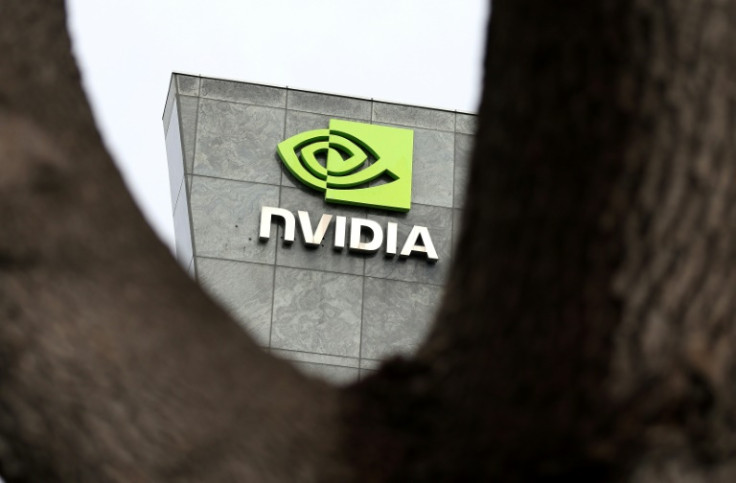What Are Nvidia's Shares Worth?

Last week, Nvidia's stock soared past the $1,000 mark, propelling the company to a market valuation of $2.55 trillion. This places Nvidia among the world's most valuable companies, competing with giants like Apple and Microsoft. The surge in stock value has sparked a debate about the true worth of the company's shares.
The Santa Clara, California-based semiconductor company is the leader in designing graphics processing units (GPUs). These products power one high-growth industry after another, from gaming to cryptocurrencies to professional visualization and data centers.
Nvidia also designs system-on-a-chip units for the fast-growing mobile computing and automotive market and develops software technologies such as CUDA.
In addition, it has made remarkable advancements in AI and deep learning through its GPUs, with broad applications in natural language processing, computer vision, and autonomous vehicles.
Nvidia's leadership in these high-growth industries has resulted in robust revenues and earnings reports, including one last week.
For the first quarter ending April 28, 2024, it reported revenues of $26.0 billion, up 18% from the previous quarter and 262% from a year ago. GAAP earnings per diluted share came at $5.98, up 21% from the prior quarter and 629% from a year ago.
Then there's the fourth quarter ending Jan. 28, 2024, when revenues were $22.1 billion, up 22% from the previous quarter and 265% from a year ago. Earnings per share were $4.93, up 33% from the prior quarter and 765% from a year ago.
"Death, taxes, and NVDA beat on earnings," said Ryan Detrick, Chief Market Strategist at Carson Group, commenting on Nvidia's recent earnings. "Even in the face of huge expectations, the company once again stepped up and delivered. The always-important data center revenue was strong, while future revenue was impressive. Bottom line, the bar was high and cleared once again."
"Nvidia delivered a strong beat-and-raise as AI visibility continues to grow and Hopper demand remains robust amidst growing competition and supply chain obstacles," said Ido Caspi, Research Analyst for Global X.
"This is evidenced by the 427% YoY revenue growth Nvidia delivered in its data center segment. The ongoing Hopper demand should help alleviate investor concerns about customers potentially delaying purchases in anticipation of the Blackwell transition," Caspi added.
Caspi is impressed by the company's gross margins of 78.4%, up 13.8 percentage points year-over-year. "This increase reflects the pricing advantages Nvidia holds across its chip lineup, even amidst growing competition," he said. "We believe Nvidia's dividend increase signals to investors that they're serious about continued profitable growth in the quarters ahead and returning value to shareholders as the Blackwell transition plays out."
Still, there's valuation. At the current market valuation of $2.55 trillion, Nvidia's stock is worth close to 9% of the U.S. GDP.
"Does it mean that the company's shares are overvalued? Well, that really depends on the valuation model used."
My Columbia University students, Yiwen Yin and Gloria Zhu, used four models in a research report.
First is the EBITDA Multiple Valuation, a company's operational profitability measure. It yields a value of $1359 per share, close to 30% above the current valuation.
Second is the Price/Earnings Multiple Valuation, which focuses on net earnings. It yields $4294 per share, close to 400% above the current valuation.
Third is the Perpetuity Growth Method, which considers the company's cash flow growth into perpetuity. It yields a value of $406 per share, close to 60% below the current price.
Fourth is the Discounted Economic Value Added (DEVA) Method (R&D-Adjusted). It yields a value of $152 per share, close to 75% below the current price.
The problem with these estimates is that they are sensitive to the assumptions made about the company's future financial performance, especially the top-line growth, which depends on the size of the demand for Nvidia's products and the company's ability to keep ahead of the competition and charge premium prices.
Philip Panaro, Founder and former CEO of Boston Consulting Group Platinion, provides a technology perspective on Nvidia's growth and how it is tied to the continued explosive growth in AI technology.
"The stock is cheap at the current price given we are 'in the first inning of the growth of AI and the multi-trillion dollar transition from Web 2.0 to Web 3.0 globally,'" he said, adding, "As a result, NVDA can reach over $8,000 a share by 2030 if it continues to align with the global growth of AI & Web 3.0."
Caspi doesn't assign a valuation number to Nvidia's shares. However, he firmly believes that with strong demand drivers and competition years behind, Nvidia can confidently defend and maintain its market share, thereby sustaining its pricing power.
"Big Tech's capital expenditure remains exceptionally high given how early we are in the generative AI investment cycle," he said, adding, "Despite efforts to explore alternative or in-house chips, their options are limited by supply constraints and the challenge of surpassing Nvidia's proven performance."
(Disclosure: The author owns shares of Nvidia.)
© Copyright IBTimes 2025. All rights reserved.






















